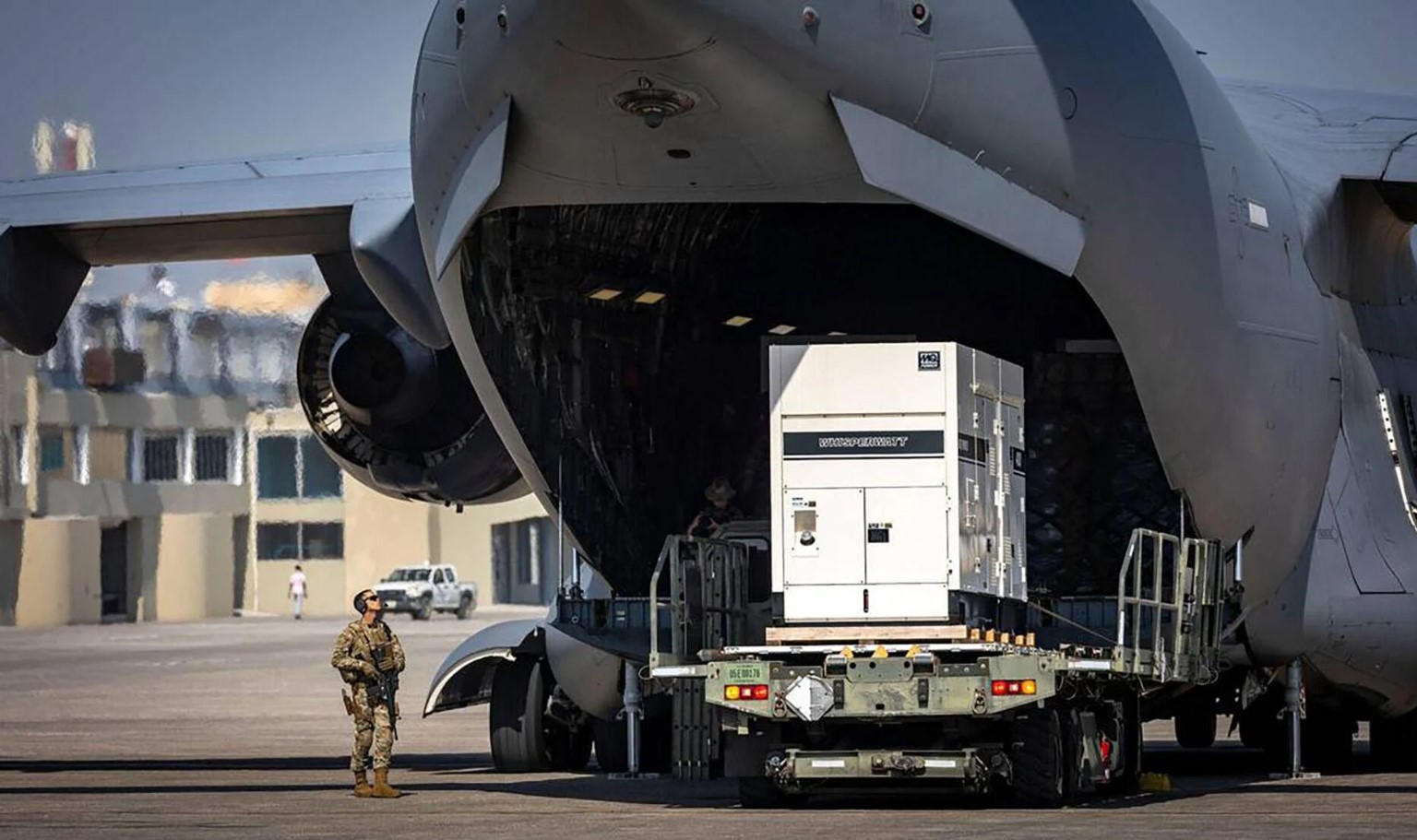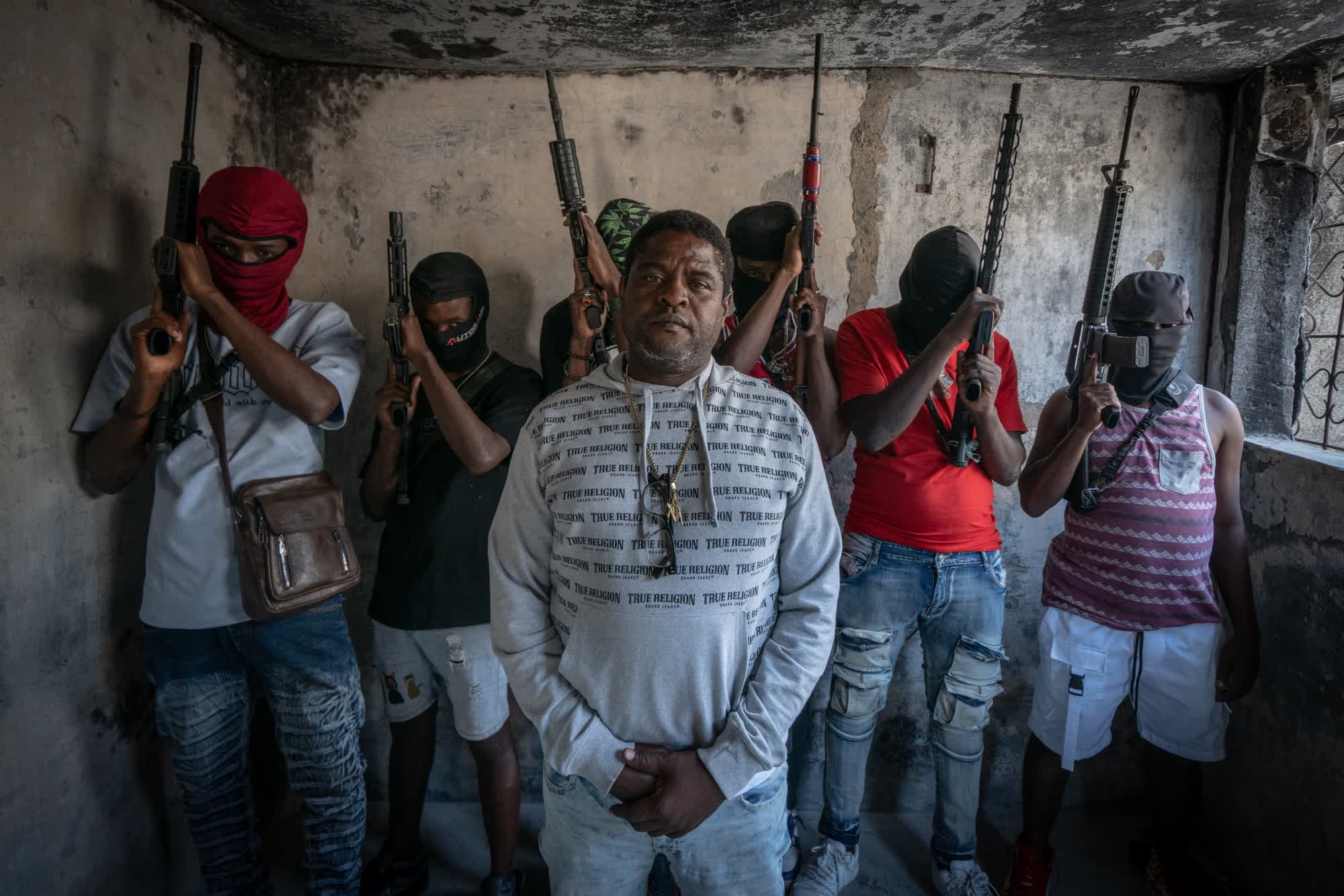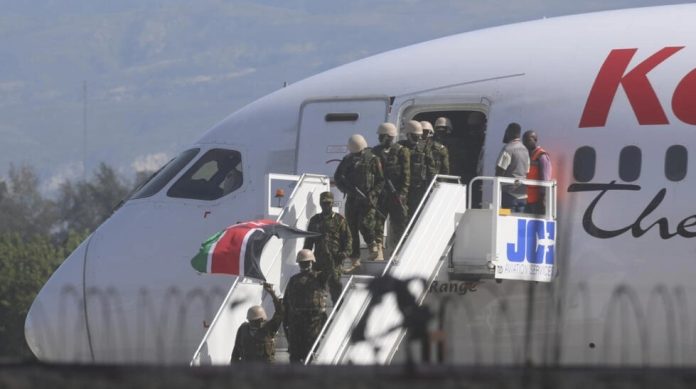Kenyan police have officially arrived in Port-au-Prince, Haiti, for the start of their long-awaited deployment in the Caribbean nation. The deployment comes after months of legal battles and other delays that have prevented it until now.
What exactly is Kenya’s deployment to Haiti?
Kenya heads the force for the Multinational Security Support (MSS) mission. The mission, which is technically led by the US, is meant to support Haiti’s police in their battle against the myriad of gangs that plague the nation. Though it is led by the US, the mission is still bound by UN charters and requires approval by the UN Security Council.
The gangs have been responsible for thousands of homicides in recent years, at a rate that is sharply increasing. So far in 2024, more than 2,500 people have been killed by gang violence. Haitian gangs also frequently kidnap civilians and foreigners for ransom, and have displaced tens of thousands of people.

Haiti’s police force is ill-equipped and undermanned to deal with the problem alone, so the MSS has deployed to assist Haiti in returning security to the nation.
Kenya, Jamaica, Belize, the Bahamas, Barbados, Bangladesh, Benin, and Chad have also pledged forces to the mission. Kenya will form the core of the mission, deploying 1,000 police, whereas the other nations will collectively deploy 1,500 officers, bringing the mission total up to 2,500. The deployment is to last at least a year, though there is a possibility it will be extended.
On June 25th, the first contingent of 400 Kenyan police officers arrived. Their first job will be to secure essential infrastructure within and around the capital; however, it is unclear at this moment where exactly the Kenyan police will begin. With much of Port-au-Prince, Haiti’s capital, being controlled by gangs, there is much to do.
The activity of the MSS is likely to be limited for a time until more officers, such as those from the other contributor nations, arrive. After more officers arrive, the MSS will carry out joint operations with Haitian police against Haiti’s gangs. Ideally, this will result in government security being reestablished over the capital, and many of Haiti’s gang leaders ending up in jail.
Salvation from Insecurity
In recent weeks, Haitian police have carried out a series of operations around Port-au-Prince’s Toussaint Louverture International Airport. Gang members had been able to hide within the surrounding residential area and fire upon any planes that were attempting to land. Such attacks had forced the airport to close to commercial flights in early March, but Haiti’s recent operations have allowed the airport to resume commercial flights.
Also, in recent weeks, US authorities have frequently delivered military equipment. The US has made more than 90 military flights to Haiti, delivering over 2,600 tons of gear that will be necessary for the MSS to operate efficiently. Further essential gear, most notably armored vehicles, has yet to be delivered.

It is unclear when the other nations involved in the MSS will be joining their Kenyan counterparts, though they are expected soon.
Delays after Delays
Kenya’s deployment to Haiti was scheduled to begin much earlier this year. On May 20th, the first Kenyan police delegation arrived in Haiti. This delegation was tasked with assessing the conditions on the ground and finalizing preparations for the first bulk arrival of Kenyan police three days later, on May 23rd, when Kenyan President William Ruto was meeting with US President Joe Biden at the White House for an official state visit.
However, amidst preparations for the deployment, the Kenyan officers were told that the deployment had been delayed again.
The advance Kenyan delegation had found that the conditions on the ground were wholly inadequate to receive the Kenyan deployment and ensure its operability. The living quarters being constructed for the MSS had yet to be completed, several different kinds of essential equipment were either completely missing or in severe shortage, and Kenya had reportedly yet to deliver the necessary paperwork to the UNSC.
Des kenyans à port au Prince ce lundi 20 mai .Une première délégation composée d’une cinquantaine de kenyans est arrivée à port au Prince ce lundi .d’autres groupes plus importants vont suivre cette semaine pic.twitter.com/NpETHLGsBK
— Wendell Theodore (@wentheodore) May 20, 2024
While equipment remains a problem, some of the necessary equipment has since been delivered, and the living quarters have been completed.
The month-long delay to secure housing and equipment occurred after what was already a long series of delays.
Kenya first announced its intention to head a multinational deployment to Haiti in July of last year. This announcement answered a call for such a force by former Haitian Prime Minister Ariel Henry the previous year. The deployment was approved by the UNSC in October, but it quickly faced a series of legal challenges within Kenya.
Opposition politicians claimed the deployment to be unconstitutional on several grounds, but primarily because it was a deployment of national police to a foreign nation.
Several court decisions struck down the deployment; however, in January, the court ruled that if Kenya and Haiti were to sign a “reciprocal agreement,” the deployment could go ahead.
In early May, a deal was signed between President Ruto and PM Henry in Kenya. However, while PM Henry was out of Haiti, the nation’s gangs launched a series of attacks that were concentrated in Port-au-Prince. The attacks were spearheaded by the infamous G9 Alliance, headed by former Haitian police officer Jimmy ‘Barbecue’ Cherizier.

The gang’s attacks were meant to force PM Henry’s resignation. They succeeded, preventing PM Henry from returning to Haiti after attacking Port-au-Prince’s airport, which forced his plane to turn around from Haiti. Several days later, PM Henry resigned.
The resignation not only threw Haiti into chaos, but also called into question the legitimacy of the agreement signed with Kenya.
The establishment of a transitional government later in the month brought the deployment back on track. Several days later, the transitional government named Garry Conille as the nation’s new Prime Minister.
The constant delays in the deployment have worsened the situation on the ground in Haiti, making the MSS’s job much more difficult.
Cherizier has vowed to fight any foreign deployment to Haiti, and so only time will tell if the MSS can produce meaningful change within Haiti or if the nation’s gangs will continue to hold control.

